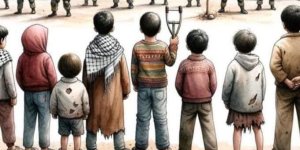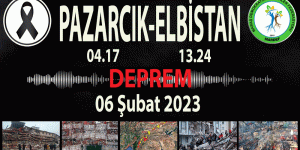An exile on the way to Ithaca Temel Demirer Wrote on Süleyman Kuş's Novel
As a branch of art, which Attila İlhan included in his "Knowledge of Life", literature is a skill, a different way of saying things, a confession, a challenge. Literature is not looking at something, but seeing it. It is not only seeing, but also touching what it sees. It is to go beyond touching and give life to what you touch. After giving life, it is to share life, to be one with it, to live it. Literature is the art of narrating humanity, the art of telling humanity; it is holding a mirror to humanity. Literature is life itself; it is understanding and making sense of humanity; it is, in Susan Sontag's words, "Literature is freedom!" or what Fernando Pessoa describes as "What is called literature is a name for endeavouring to make life as real as possible"... * * * * * In Süleyman Kuş's 'Exile in Your Own Country'[2], we once again witness that this is so and much more. He talks about "Ferit" (pp.8-12), "Kenan" (pp.13-45) and so on; all of them are from us and from within life; of course with their question(s)... While answering the question "Why the blue sky" (p.63); "Pages from lost diaries" (p.73) appear before us... And He is always "On the Road"... (p.97-113) Being on the road, travelling, is one of the main themes of literature. It has been a subject of interest in literature since ancient times. In the 'Divine Comedy' of Dante Alighieri from Italian literature, "his imaginary journey to Hell, Purgatory and Paradise"... Nâzım Hikmet Ran's 'Memleketimden İnsan Manzaraları', Fisherman of Halicarnassus Cevat Şakir Kabaağaçlı's 'Blue Exile', Demir Özlü's 'Journey to Ithaca'... Or longing for Ithake for Odysseus, who dreamed of being at home every time he was overwhelmed by the bloodshed of the Trojan War... The lines of Konstantinos Kavafis summarise it all as follows: "When you set out for Ithaca,/ may your journey be long,/ full of adventure, full of knowledge.// May your journey be long. / May there be many summer mornings// Don't ever forget Ithaca./ It's your main destiny to get there./ but don't try to end the journey too soon./ Better let it last for years;/ at the end, drop anchor in Adana as an old man// After all the experiments you've been through/ you've become so wise,/ now surely you know/ what Ithaca means...[3] * * * * * Süleyman Kuş has experienced all the upheavals of the journey to Ithaca in our geography. He was born in the spring of 1967 in the arms of his family who worked as agricultural labourers in the fields of Çukurova. He spent his childhood in the 1970s and his youth under the conditions of the 12 September period. At university, in 1987, he joined the youth's struggle for an autonomous, democratic university against oppression. He was subjected to pressure, torture and labelled. He became wanted and was expelled from the university. He worked as a market vendor, peddler and then in various construction sites. He wrote under various pseudonyms. At the end of his "expatriation" in his geography, when he left his "beloved, sad homeland" in 2019 Nevroz, "Internal exile evolved into external exile". Süleyman Kuş's 'Exile in Your Own Country' tells this adventure... * * * * * I first came across the phrase "you are an exile in your own homeland" in Erdal Atabek's book;[4] he was talking about the human condition(s) underlined by Süleyman Kuş. "How"? Exile is being forced to live in a climate that one does not desire against one's will. While exile is an imposed way of life; for some people, "one can be an exile in one's own homeland". In fact, when you expand the concept, you can be an exile even within ourselves; "Weren't people who were isolated from life and deprived of emotions actually 'exiles'?"! Is exile only experienced far away from where we were born and raised? Can one not also be an exile in one's own hometown, among one's own people, among those one loves? Isn't "being exiled to oneself" the worst of all exiles? Milan Kundera describes this state as follows: "Immigration is difficult even from a purely personal point of view: One always thinks of the pain of longing, but the worst is the pain of alienation; the German word die Entfremdung better explains what I mean: The process by which what is close to us becomes foreign. Entfremdung is not suffered in the country of emigration: There the process is reversed: The foreign gradually becomes close and important... Only a return to the homeland after a long separation can reveal the essential authenticity of the world and of existence."[5] In the words of Edward Said, "Exile is the irreparable breach that opens between a person and the place where he was born and raised, between the self and the true home of the self. Its inherent sorrow cannot be overcome."[6] "Exile is essentially a jealous state. When you have so little, you cling to what you have with an aggressive protectiveness."[7] "To think about exile is strangely inviting, even provocative, but to experience exile is horrible. Exile is the irreparable breach that is forced open between a person and the place where he or she was born and raised, between the self and the true home of the self: its inherent sorrow cannot be overcome. It is true that history and literature contain stories that depict exile as a situation that opens heroic, romantic, glorious and even triumphant pages in one's life. But these are just stories, an attempt to overcome the crippling sadness of alienation. The gains made in exile are constantly undermined by the loss of something left behind forever."[8] Is it easy? "No one is at peace in exile. Firstly, no one goes into exile by choice. Secondly, no one can go through a period of exile that does not leave a strong mark on them. Exile affects you existentially. It encompasses you as a being. It shakes you physically and mentally. Exile magnifies your virtues and faults,"[9] Paulo Freire adds. * * * * * To summarise, the state of exile that makes Aysel Gürel say, "Exile is alone in every breath"; Nâzım Hikmet say, "I am a walnut tree in Gülhane Park/ neither you realise this/ nor the police realise it"; Ingeborg Bachmann say, "I am a dead man, wandering around/ I have no record anywhere anymore" is neither absolute nor ambiguous. It is a punishment, a condemnation, a removal/ detachment. Or it is a state where the bread is salty and the stairs are difficult to climb. Or as far as you can go is your exile; every exile is a traveller until he/she returns home. However, while exile carries the pain of "not being there", of "being a stranger", time also changes what is longed for - cities, geography and people. Also, there is no going back. Because the place of return is not the place of departure. * * * * * To summarise; even though everywhere is dim darkness in exile; exile (exile) is sometimes to give exile, to pull the sprouts from their scabbard and to herald the spring; as in Bertolt Brecht's lines, "what good is it to hammer nails into the wall/ hang your dress on the chair/ you will return anyway// won't the letter calling you/ be written in your mother tongue?"... In exile, as a possibility of decay or creativity, "Be afraid if man himself does not suffer and die for the sake of an ideal, for this one quality is the foundation of man, and this one quality distinguishes man from all other things in the universe";[10] "The person in exile is the perfect state of the utopian man: He always lives in nostalgia for the future," says Ricardo Puglia... In Süleyman Kuş's 'Exile in One's Own Country', you will see and find the perfect state of an Ithaca traveller who is kneaded with the hope of the future... 12 August 2023 13:29:41, Cesme Village. N O T L A R [1] Ursula K. Le Guin. [2] Süleyman Kuş, Sürgün in His Own Country, Ubuntu Yay., 2022. [3] Konstantinos Kavafis, Anthology of Contemporary Greek Poetry, translated by Cevat Çapan, Adam Yay., 1982, pp.20-21. [4] Erdal Atabek, Sürgünsün in Your Own Country, Altın Kitaplar, 1989. [5] Milan Kundera, Deviated Wills, translated by Özdemir İnce, Can Yay., 1995, pp.78-79. [6] Edward Said, The Spirit of Winter, translated by Tuncay Birkan, Metis Yay., 2000, p.28. [7] yage, p.33. [8] yage, p.28. [9] Paulo Freire, Pedagogy of the Oppressed, translated by Erol Özbek-Dilek Hattatoğlu, Ayrıntı Yay., January 1991. [10] John Steinbeck, The Grapes of Wrath, translated by Gülen Fındıklı, Remzi Kitabevi, 2014.



 Türkçe
Türkçe 






















